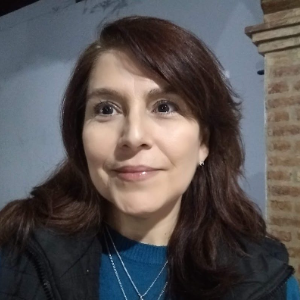Title : Regeneration strategies in native woody species from disturbed South American dry tropical forests: the of aerial bud bank and soil seed bank
Abstract:
The resilience of dry tropical forests is one of most central goal for scientists, environmental managers and politicians in South American countries due to the climate and land-use changes and to the great human population living to expenses forest resource at these latitudes. South American Chaco region forests are strongly modified by anthropic disturbances as wildfires, logging, livestock, rolling chopper to silvopastoral systems. Studies about regeneration strategies of native flora are yet scarce and fragmentary. The recruitment of new individuals and resprouting after disturbances are dependent from bud bank and seed bank of native species, respectively. The native vegetation responses to anthropogenic disturbances are been studied through functional approach in order to assess their effects on plant persistence and community dynamic. The native woody species have a high resprouting ability from aerial and subterraneous organs, which allow the maintenance of the species composition of forests after disturbances. However, structural changes related to resprouting, spinescence and growth habit occurred in disturbed forests of Chaco region. The resprouting pattern (basal vs/epicormic) is influenced by fire intensity and aerial bud bank of species. Disturbances drove the forest structure with three strata towards dense and thorny shrublands, with low potential for wood production, non-timber forest products as forages, medicinal plants, tinctures, among other environmental services. The seed density in soil decreased in forests disturbed by roller chopping and logging respect to forest under closure over the last three decades which could be related to biomass remotion and disturbance synergism. The studies about seed viability of dominant forest species showed a low persistence into the soil seed bank and low tolerance to heat shock at lab and in experimental fires. The assessment of soil seed bank of the six dominant species in Chaco region forests under closure and under synergic disturbances (wildfires and rolling chopping) are in course. Dominant species of Chaco region forests are wind-dispersed and their dispersion units are common components of leaf litter. This location exposes them to a greater degradation than those secondary species whose dispersion units remain immersed in soil upper horizons. There were no recruitment from seeds located in leaf litter, two years after medium to high severity experimental burns suggesting the importance of soil protection during wildfires and prescribed fires and the adverse environmental conditions for germination. The difficulties for native woody species recruitment in Chaco forests environments could reduce genetic diversity of their populations representing a great risk under climate change landscape. Our results suggest that disturbance frequency must be closely controlled to avoid losing of forest structure, genetic diversity and environmental services.
Take Away Notes:
• The wide audience of congress will recognize common aspects and knowledge needs related to management of dry tropical forests of the World.
• The functional approach based in the relative importance of both woody species regeneration strategies can guide similar researches in other semiarid areas of World; as well this work can give an example to analyze in ecology classes.
• Early results of this work can improve models about dry tropical forest dynamics in disturbed landscapes and provide information to enhance the experimental design of other researches.

